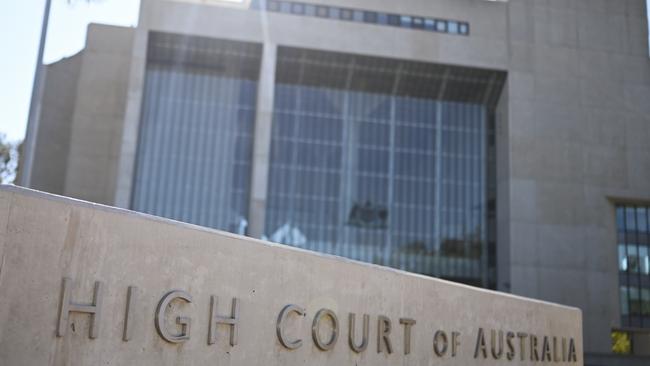High Court selection ‘at risk of partisanship’
Australia faces the risk of US-style ‘divisive and partisan’ battles over High Court appointments.

Australia faces the risk of US-style “divisive and partisan” battles over High Court appointments unless greater efforts are made to pick judges who will uphold the sovereignty of parliament and the people’s role in shaping public policy changes.
In an address to the Samuel Griffith Society, Victorian Liberal senator James Paterson makes the case for greater scrutiny of the “judicial philosophy” of potential appointees to minimise activist decisions that risk politicising the nation’s highest court.
The warning comes ahead of two upcoming vacancies on the High Court, including Geoffrey Nettle, who retires in December, and Virginia Bell, who is to depart next March.
Writing in The Australian on Friday, Senator Paterson says: “When judges are appointed without thorough consideration of their judicial philosophy, we are gambling with the future of our political system.”
He says it is “irrelevant who a judge votes for, and it should remain so” but “what matters is their views on what issues should be properly decided by a democratically elected parliament, rather than the courts.”
In his speech, delivered via Zoom, Senator Paterson attacks the February 11 High Court decision in which a narrow majority of four to three judges found that Aboriginal Australians fell outside parliament’s power to make laws with respect to “aliens” — a key constitutional provision that underpins the Migration Act.
Three of the four judges in the majority were Coalition appointments selected by George Brandis when he was attorney-general in governments led by Tony Abbott and Malcolm Turnbull.
The case saw two foreign citizens, Daniel Love and Brendan Thoms, both of whom had their visas cancelled after being convicted of violent crimes, argue against their deportation because they met the test to be considered Aboriginal and enjoyed a special connection with the land.
Senator Paterson says the High Court decision undermines the “nature of our democratic system of government” by allowing a category of people to remain in Australia “regardless of whether or not they have citizenship or a valid visa” without reference to parliament or the public.
“The court has effectively taken this decision out of the hands of the democratically elected parliament,” he writes in The Australian.
In her dissenting judgment, Chief Justice Susan Kiefel was scathing about the majority decision, saying it was “not up to the judiciary to determine whether persons having the characteristics of the plaintiffs are aliens.”
“Such an approach would involve matters of values and policy. It would usurp the role of the parliament,” she said.
Judge Stephen Gageler — one of the dissenting justices — also warned the decision inferred a new “race-based constitutional limitation on legislative power”.
Senator Paterson says the effect of the decision comes “perilously close to granting sovereignty to indigenous communities” and will fuel “scepticism and caution” about the push to establish an indigenous voice to parliament.
He is strongly opposed to enshrining such a body in the Constitution, arguing it carries “profound constitutional risks”.



